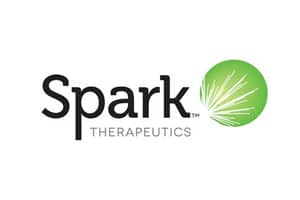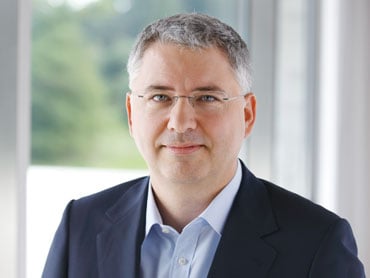
Roche is set to transform its presence in advanced therapies with a $4.3bn deal to buy Spark Therapeutics, the first company to win approval for a gene therapy in the US.
The $114.50 per share deal will give the Swiss pharma giant rights the approved therapy Luxturna (voretigene neparvovec) for a rare inherited retinal disease, as well as four candidates in clinical trials headed by SPK-8011, a therapy for haemophilia A which is expected to start phase 3 testing before year-end.
At a stroke, Roche becomes a major player in gene therapy, which after decades of development is only just starting to become a commercial proposition. $850,000-per-treatment Luxturna is now the only gene therapy approved in both the US and Europe following a green light from the EMA last November, and made $27m in sales in the last quarter of 2018.
With rival companies such as fellow Swiss group Novartis and Pfizer making big plays in the high-tech cell and gene therapy categories, Roche had been at risk of falling behind. Moreover, the deal also gives it multiple gene therapy candidates for haemophilia, a category the company broke into a couple of years ago with its fast-growing Hemlibra (emicizumab) antibody which could be threatened by a gene therapy explosion
Novartis – which made its own big play in gene therapy with the $8.7bn purchase of AveXis last year – has rights to Luxturna outside the US.
Along with SPK-8011, Spark also has SPK-8016 in a phase 1/2 trial aimed at treating haemophilia A patients who have developed inhibitors to conventional clotting factor replacement therapy, and a therapy for haemophilia B called SPK-9001 in phase 3.
It’s facing of competition in this area though, with BioMarin’s valoctocogene roxaparvovec also in phase 3 testing for haemophilia A and looking like it could be first to market at the moment, and UniQure and Pfizer/Sangamo both ushering haemophilia B therapies through pivotal trials.
Roche is now also thrust firmly into the spotlight as the debate about how to price these expensive, one-shot therapies starts to gather pace. Spark has already made some efforts towards value-based pricing for Luxturna based on clinical outcome in order to win reimbursement, but there is likely to be a number of twists in the tale before health systems around the world work out how to provide affordable access to gene therapies.
Also in Spark’s pipeline is SPK-7001 for choroideremia in phase 1/2, while two other candidates – SPK-3006 for Pompe disease and SPK-1001 for CLN2 disease – are due to start human testing in 2019. Spark has additional preclinical programmes in Huntington’s disease and Stargardt disease.

Roche CEO Severin Schwann (pictured) said Spark has “proven expertise in the entire gene therapy value chain”, adding that the company will retain its autonomy as an independent company within the Roche group.
Spark’s main location in Philadelphia will remain a “centre of excellence”, said Schwann.
The acquisition will inevitably increase expectation of more buyouts in the cell and gene therapy sector. Boston-based Spark has been in friendly rivalry with its neighbour Bluebird, which is pioneering gene therapy for beta-thalassemia. It is awaiting an EMA review of its LentiGlobin candidate, expected later this year, but would also be high on big pharma acquisition lists thanks to its presence in BCMA-targeting CAR-T treatments for multiple myeloma.




